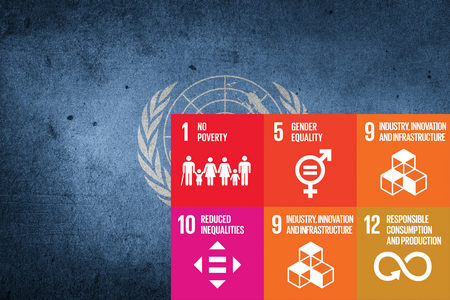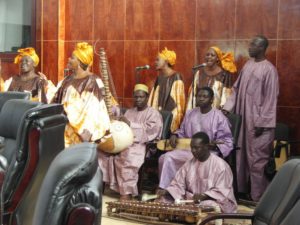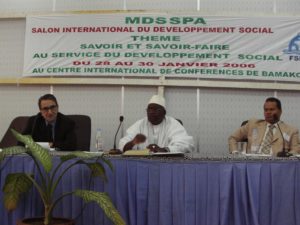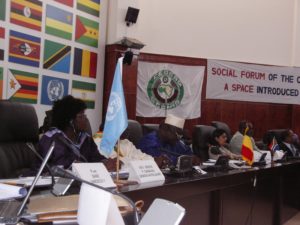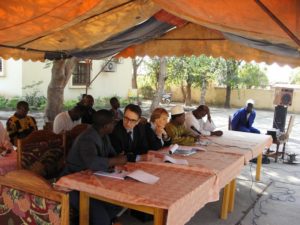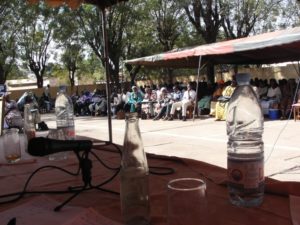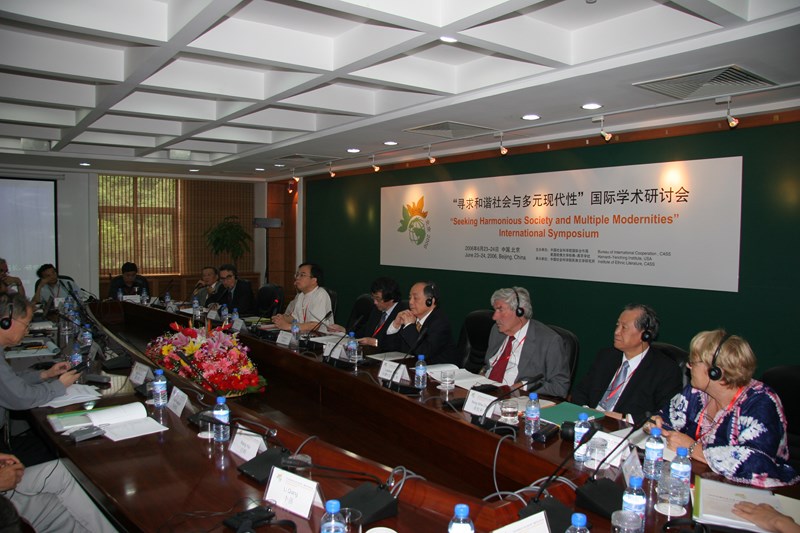
International Symposium
Development for Harmonious Societies in a Pluralistic World, Beijing,2006
Event with Chinese Academy of Science and representative of the Triglav Circle
All great civilizations have flourished from a strong and organized economic ground. Neither are new the difficulties inherent to its realization. Deification of the economy and neglect of its elementary working conditions are opposite but recurrent temptations. Today’s circumstances, however, make the task of building humane economies for harmonious societies both urgent and exceedingly difficult.
Click here to read more
Forum for Social Development, Bamako, Mali Feb 2009
Social Development Forum
There were two events. The first was a meeting of the Ministers for Social Development of the West African region who, for the first time, were establishing a basis for active cooperation on social issues. This process is supported by UNESCO, in the context of its program MOST (Management of Social Transformation). The text adopted, in the presence of a representative of the African Union, is an interesting example of a mix of universal values and principles (directly inspired by the text of the Copenhagen summit, which is much more alive in Africa than at the Headquarters of the United Nations) and of African traditions and specificities… The second event was a Salon du Developpement (sort of “Development Fair”) which brought together for three days a large variety of representatives of the Malian society. …
See more Forum for Social Development
The Spiritual and Moral Dimensions of the Politics of Development Dimensions spirituelles et éthiques des politiques de développement,
By Barbara Baudot in Mali
Today when international political pundits discuss development in the forums of national governments and of international organizations, the discourse centers on economic growth, debt burdens, free trade and foreign direct investment: how to stimulate it, how to develop more efficient markets, how to make countries more competitive, how countries can become players in the global market society. Few if are discussing the intangible issues of life that should govern and direct these efforts. Such issues include nothing less than the larger meaning and purpose of human life… It is these types of questions with intangible answers that must also be addressed if the world is truly going to develop the potential nature has given humankind. Tackling them means addressing the spiritual and moral dimensions of development politics .
Read the full text of speech in pdf
Simpler Life Styles: Utopia or Reasonable Political Project, Report , Ougny France, June 11 2006
Simplicity is a.sophisticated concept. It is not the same as poverty and material deprivation. A simple life requires a minimum amount of money, this amount varying with places and circumstances. But frugality demands generosity and liberality, for a simple life ought not to be tense and self-centered. So much so that, for instance in the Quaker tradition, simplicity is the condition for and the equivalent of generosity and respect for the other. It means attention to the needs of other human beings, especially the weakest. It also means rejection of violence. It is the opposite of selfishness, self-assertion, and self-centeredness.
The Idea of Progress and its Relevance for the 21st Century
Agenda, programme of Work and Report
Four currents ran through the debate: a critique of progress, as a concept and an ideology central to the dominant form of modernity; an apology of the same idea of progress, judged by its fruits; a focus on social progress, as a political project; and, a restoration of the meaning of the word and the place of the concept in different historical and cultural settings. These four perspectives, which might be labeled critical, apologetic, social and academic, are outlined below. Some common grounds are then indicated and pending questions are identified, including the possible renewed need for a Utopia.
Enriching the United Nations 2030 Agenda with the encyclical letter Laudato Si’ Report Domaine de La Garde, Bourg en Bresse 2016.
Two documents were before the Seminar.[1] The first, entitled, Explanatory Note and Themes for Selection of Questions in an Agenda, was circulated at the end of May. It provided a brief analysis and comparison of two texts – a text adopted by the General Assembly of the United Nations in September 2015 entitled Transforming our world: the 2030 Agenda for Sustainable Development (thereafter the 2030 Agenda) and the Encyclical Letter Laudato Si’, On Care for Our Common Home, issued by Pope Francis in May 2015 (thereafter the Letter)- and it argued that the Letter should be used to “enrich” the 2030 Agenda
[1] Four written comments on the Explanatory Note were also made available at the meeting. They were written by Christian Balslev-Olesen, Steve Gorman, Max Harris (non- participant) and Konrad Raiser.
Read the final report in pdf
[1] Four written comments on the Explanatory Note were also made available at the meeting. They were written by Christian Balslev-Olesen, Steve Gorman, Max Harris (non- participant) and Konrad Raiser.
Violence against Nature and Man, and the Search for the Common Good.Canton de Vaux in Switzerland.13-15 July 2012
Two assumptions explain the choice of this subject. The first is that all forms of violence are related and feed each other: violence against the environment feeds violence in international and personal relations, and violence in the public discourse and policies feeds violence in schools and homes. The second assumption is that a coherent and shared perception of the values that constitute universal good can generate the peace and respect for all life without which humankind would find great difficulty freeing itself from the likely consequences of this violence, be it an ecological catastrophe, an atomic or chemical warfare, or the development of new forms of oppression and slavery. .
Highlights
Development issues in pluralistic societies
Costs and benefits of material progress
Progress to what end ?
Automation and the future of work
Scientism, materialism and matters of spirit
Laudato si, other religious documents and UN agenda
